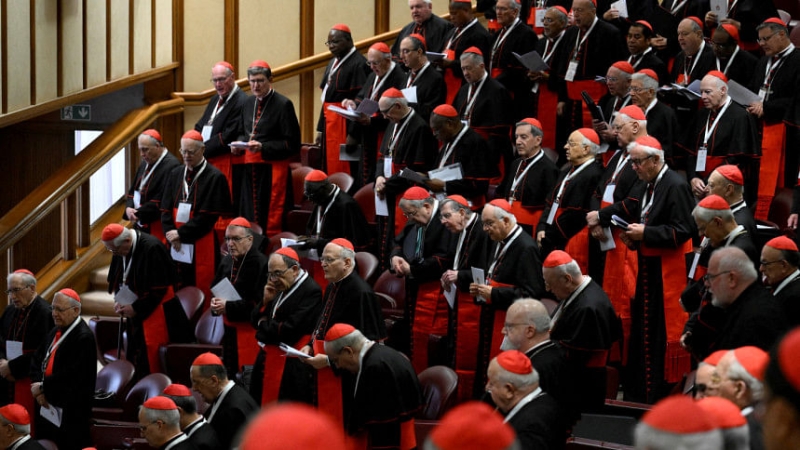- India Sees 9% Drop in Foreign Tourists as Bangladesh Visits Plunge |
- Dhaka Urges Restraint in Pakistan-Afghan War |
- Guterres Urges Action on Safe Migration Pact |
- OpenAI Raises $110B in Amazon-Led Funding |
- Puppet show enchants Children as Boi Mela comes alive on day 2 |
Conclave to Elect New Pope Will Begin on May 7, Vatican Says

The Roman Catholic Church will begin its secret conclave to elect a new pope on May 7, the Vatican confirmed today.
The date was set during a closed-door meeting of cardinals, the first since the funeral of Pope Francis on Saturday.
Around 135 cardinals, all under the age of 80 and from across the world, are eligible to participate in the conclave to choose the next leader of the 1.4-billion-member global Church.
The Sistine Chapel, where the conclave will take place, was closed to tourists on Monday to prepare for the election.
Unlike the previous conclaves in 2005 and 2013, which lasted only two days, the upcoming conclave may take longer. Swedish Cardinal Anders Arborelius pointed out that many of the cardinals appointed by Pope Francis have never met, as the pope prioritized appointing cardinals from regions without a history of them, such as Myanmar, Haiti, and Rwanda.
"We don't know each other," said Arborelius, one of the 135 cardinals under 80 who will enter the conclave.
The conclave could have started as early as May 6, but starting a day later gives cardinals more time for discussions before the critical vote.
The past 10 conclaves have typically lasted three days on average.
Pope Francis, who passed away on April 21 at the age of 88, was laid to rest after a funeral on Saturday. A procession through Rome to his burial place at the Basilica of St. Mary Major drew an estimated 400,000 mourners.
German Cardinal Walter Kasper noted that the public's outpouring of grief for Pope Francis indicates a desire for the next pope to continue his reformist approach. Pope Francis, the first Latin American pope, pushed for new conversations within the Church on issues like ordaining women and engaging with LGBTQ Catholics.
"The People of God voted with their feet," said Kasper, who will not participate in the conclave due to his age. "I am convinced we must move forward in the footsteps of Francis."
However, a bloc of conservative cardinals is expected to resist this direction and seek a pope who reasserts traditional values and curtails some of Francis’ inclusive reforms.

